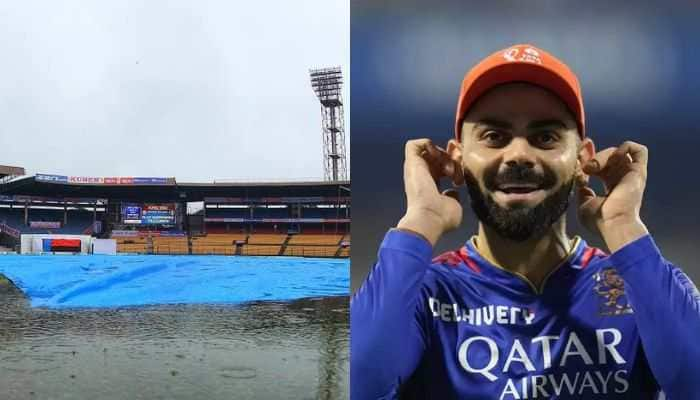Politics over Chhath shows why national capital Delhi must avoid regionalism, remain a 'mini India'
Delhi is not a product of the linguistic reorganisation of the states that happened in 1956, but has a unique status.
Trending Photos
)
As a long-time resident of Delhi of southern origin, I have always respected the multicultural character of the national capital. It ought to be that way because the city is a mini-India by design. While Mughals and British rulers induced various shades of cultural influences on the ancient city, from forts to churches, it is only after Independence in 1947 that you could say it became officially multicultural, because, "We, the people of India..." united to form a new republic with its capital in New Delhi.
I grew up amidst camaraderie: between Hindus, Muslims and Christians; Maharashtrians, Bengalis, Tamilians and Punjabis; between various other languages, sects and denominations. What we had then not bargained for is that our Union Territory would one day become a state with its own legislative assembly, and then extend itself to nearby provinces to form the National Capital Region.
This long preamble is necessary because I am sensing a new politics in the city that may change its character from one that is equanimously multicultural to one in which populism might get the better of vision -- because of the thing they call petty politics. There is a peculiar puzzle that needs to be solved. Delhi belongs to all, and precisely because of that, the government should belong to none in particular. The current politics in the city involving the ruling Aam Aadmi Party, the opposition BJP and of course, the Congress, is throwing up new questions that need to be answered, although there are no easy answers.
I did not like it a few years ago when BJP leader Vijay Goel talked of stopping migrants from UP and Bihar from settling in Delhi -- forgetting that his own party's base was among migrant Punjabis who were not native to the city. In both Delhi and Mumbai, the soft targets to local right-wing populists are the Biharis. However, the Biharis have emerged as a vote bank in Delhi and to a certain extent, Mumbai, and that is creating new political practices that I fear contains the seeds of fissures. This is something the national capital cannot afford.
The latest round of competitive populism around the Chhath Pooja festival celebrated by Biharis in a worship of the sun a few days after Diwali raises questions on the multicultural nature of Delhi. The local government should not be seen as partisan to any community. TheAAP government has declared a holiday for the festival in government offices and schools, while the BJP and AAP are fighting it out over arrangements made on the banks of the Yamuna for Biharis.
The Congress government under Sheila Dixit was among the early ones helping Biharis. Party leader Ajay Maken is now accusing AAP of doing politics with Chhath Puja while saying in the same breath that there is a "lack of preparations." The South Delhi Municipal Corporation is allocating as much as Rs 40 lakh from taxpayer money to make arrangements for the festival. While the AAP accuses the BJP of attacking Purvanchalis (local reference to people from east UP and BIhar), the BJP is joining the Congress in saying that the AAP is not making enough arrangements for the festival. What's more, the BJP's Delhi state unit now even has a Bihari president in actor Manoj Tiwari.
Where does that leave the Odiyas, Bengalis, Telugu speakers, Northeasterners and people from various parts of the country? Should Delhi make arrangements or declare a holiday for a Jagannath Rath Yatra for Odiyas, a Saraswati Pooja for Bengalis, a Bathukamma festival for those from Telangana and a Chapchar Kut for Mizos? Should Sindhis demand something special for Jhulelal? In fact, Sindhis deserve special treatment because the region they come from is not in India anymore even as they contribute to every sphere of excellence in India.
Delhi's original inhabitants have flavours of Rajasthan, Haryana and UP as the geographical location is close to these areas. Independence and Partition brought in the Sindhis and Punjabis, including Sikhs. Government jobs attracted southerners and easterners as well. Delhi is a cultural melting pot -- and I would argue it has overtaken Mumbai as one. Its politics must steer clear of any partisan influence in this because as a national capital, Delhi is bound by the Constitution to be multicultural.
This requires the state government to have clear-cut policies on how to engage with various communities and citizens. State resources and time must be spent keeping in mind the interests of all concerned. Laws must be framed keeping in mind the fact that Delhi is not a product of the linguistic reorganisation of the states that happened in 1956, but has a unique status.
AAP, Congress and BJP must realise alike that they may have to face the Supreme Court someday if their partisan ways lead to regionalist tensions within Delhi. The city is meant to be a mini-India in the best possible sense of the term -- not the worst. Whether these parties like it or not, while local governance must be carried out under democratic norms, populism must have its limits. Delhi's cultural character should be of the Union Territory that it once was.
(Madhavan Narayanan is a senior journalist who has covered politics, diplomacy, business, technology and other subjects in a long career that has spanned organisations including Reuters, Business Standard and Hindustan Times. He is currently an independent columnist, editor and commentator. He is listed among the top 200 Indian influencers on Twitter. He tweets as @madversity)
(Disclaimer: The opinions expressed above are the personal views of the author and do not reflect the views of ZMCL.)
Live Tv







)
)
)
)
)
)
)
)
)
)
